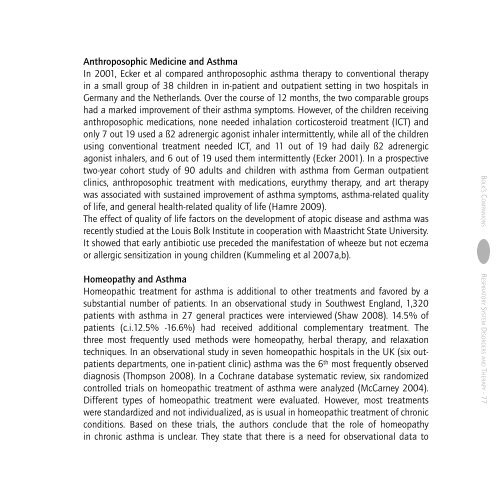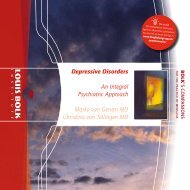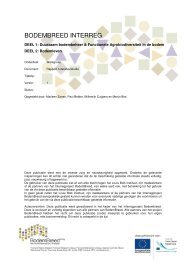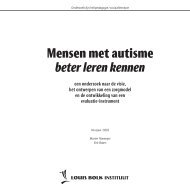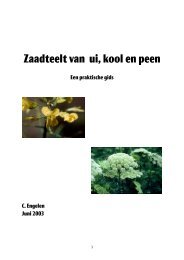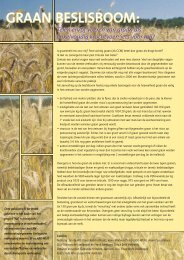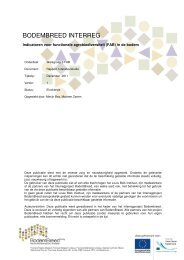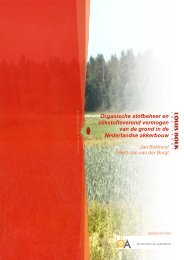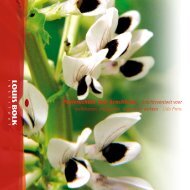Respiratory System Disorders and Therapy From a New - Louis Bolk ...
Respiratory System Disorders and Therapy From a New - Louis Bolk ...
Respiratory System Disorders and Therapy From a New - Louis Bolk ...
You also want an ePaper? Increase the reach of your titles
YUMPU automatically turns print PDFs into web optimized ePapers that Google loves.
Anthroposophic Medicine <strong>and</strong> Asthma<br />
In 2001, Ecker et al compared anthroposophic asthma therapy to conventional therapy<br />
in a small group of 38 children in in-patient <strong>and</strong> outpatient setting in two hospitals in<br />
Germany <strong>and</strong> the Netherl<strong>and</strong>s. Over the course of 12 months, the two comparable groups<br />
had a marked improvement of their asthma symptoms. However, of the children receiving<br />
anthroposophic medications, none needed inhalation corticosteroid treatment (ICT) <strong>and</strong><br />
only 7 out 19 used a ß2 adrenergic agonist inhaler intermittently, while all of the children<br />
using conventional treatment needed ICT, <strong>and</strong> 11 out of 19 had daily ß2 adrenergic<br />
agonist inhalers, <strong>and</strong> 6 out of 19 used them intermittently (Ecker 2001). In a prospective<br />
two-year cohort study of 90 adults <strong>and</strong> children with asthma from German outpatient<br />
clinics, anthroposophic treatment with medications, eurythmy therapy, <strong>and</strong> art therapy<br />
was associated with sustained improvement of asthma symptoms, asthma-related quality<br />
of life, <strong>and</strong> general health-related quality of life (Hamre 2009).<br />
The effect of quality of life factors on the development of atopic disease <strong>and</strong> asthma was<br />
recently studied at the <strong>Louis</strong> <strong>Bolk</strong> Institute in cooperation with Maastricht State University.<br />
It showed that early antibiotic use preceded the manifestation of wheeze but not eczema<br />
or allergic sensitization in young children (Kummeling et al 2007a,b).<br />
Homeopathy <strong>and</strong> Asthma<br />
Homeopathic treatment for asthma is additional to other treatments <strong>and</strong> favored by a<br />
substantial number of patients. In an observational study in Southwest Engl<strong>and</strong>, 1,320<br />
patients with asthma in 27 general practices were interviewed (Shaw 2008). 14.5% of<br />
patients (c.i.12.5% -16.6%) had received additional complementary treatment. The<br />
three most frequently used methods were homeopathy, herbal therapy, <strong>and</strong> relaxation<br />
techniques. In an observational study in seven homeopathic hospitals in the UK (six outpatients<br />
departments, one in-patient clinic) asthma was the 6 th most frequently observed<br />
diagnosis (Thompson 2008). In a Cochrane database systematic review, six r<strong>and</strong>omized<br />
controlled trials on homeopathic treatment of asthma were analyzed (McCarney 2004).<br />
Different types of homeopathic treatment were evaluated. However, most treatments<br />
were st<strong>and</strong>ardized <strong>and</strong> not individualized, as is usual in homeopathic treatment of chronic<br />
conditions. Based on these trials, the authors conclude that the role of homeopathy<br />
in chronic asthma is unclear. They state that there is a need for observational data to<br />
<strong>Bolk</strong>’s Companions RespiRatoRy system DisoRDeRs anD theRapy - 77


